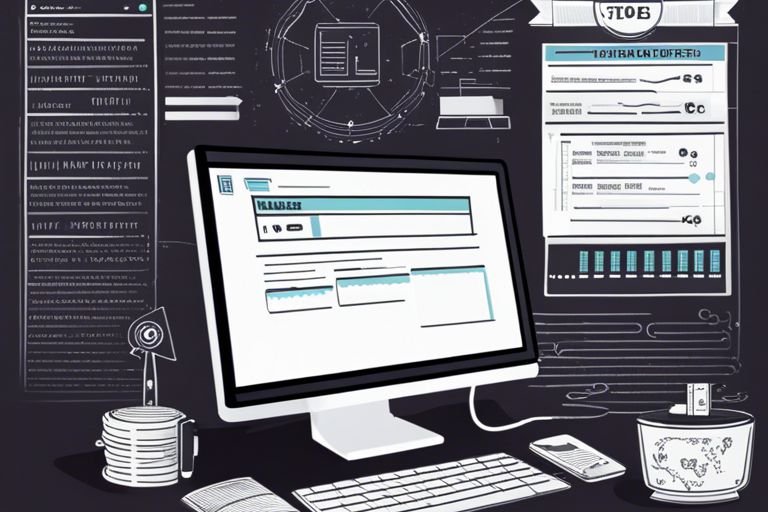Imagine a future where your everyday transactions, from buying groceries to banking, are secure, transparent, and streamlined like never before. Picture a world where your privacy is preserved, yet your data is more transparent than ever to those you trust. Sounds promising, right? Well, with Blockchain technology, these scenarios are becoming a reality, as this relatively fresh novelty is revolutionizing industries across the globe with its transformative applications. In the article “Blockchain Applications”, you will be guided through a fascinating journey that explores ten revolutionary uses of Blockchain, which are shaping the future of global systems and economies, redefining transparency, security, and efficiency as we know it.

Financial Services
From banking transactions to medical records, digital technologies have revolutionized how information is exchanged in today’s world. You may be interested to know that blockchain technology is at the forefront of this digital revolution, particularly in the Financial Services sector.
Payment Systems
With blockchain technology, you can now complete financial transactions, such as transferring money or paying for a product, without the need for a trusted third party like a bank. The decentralized nature of blockchains means these transactions are recorded and validated by multiple parties, reducing the risk of fraud.
Remittance Services
On top of that, blockchain has been extremely helpful in simplifying the process of sending money across international borders. Traditional remittance services can be expensive and slow, but thanks to blockchain, these difficulties are becoming a thing of the past. The transparency and security provided by blockchain allow you to send money swiftly with a lower fee.
Smart Contracts
Smart contracts enable you to automate transaction agreements on the blockchain. These are self-executing contracts with the terms of the agreement directly written into code. Because smart contracts run on the blockchain, they are transparent and can reduce the risk of manipulation or fraud.
Digital Identity
Additionally, blockchain technology is tackling the issue of identity theft by bringing digital identities into the financial services sector. It enables you to have control over your data, allowing you to verify your own identity for transactions. This makes data breaches less likely and could potentially revolutionize the way we think about secure identity.
Supply Chain Management
With blockchain’s capabilities applied to supply chain management, it’s a win-win situation not only for businesses but for you as a consumer too.
Tracking and Tracing
You can now trace exactly where a product was sourced from, right up to the point you purchase it. This level of transparency is possible with blockchain technology, and it can hold companies accountable for their supply chain operations.
Provenance Verification
Often, it’s difficult to verify a product’s origin and the claims a company makes about its product. Blockchain offers a solution to this by providing a secure and verifiable record of a product’s journey from source to consumer. This helps to prevent fraud and ensures product authenticity.
Inventory Management
Besides, with blockchain technology, businesses can maintain an accurate, real-time inventory record. This transparent and decentralized system can result in cost savings as well as improved efficiency in supply chain management.
Quality Assurance
Quality assurance is another area where blockchain can shine. By reducing chances of counterfeiting and ensuring the conditions maintained during transport are up to standard, it’s possible to ensure the quality of goods.
Healthcare
The potential of blockchain technology goes beyond finance or supply chains – it extends to healthcare too.
Secure Patient Data Sharing
Under the traditional system, sharing patient data could result in breaches of privacy. However, with blockchain, you can share your medical records securely and privately with healthcare providers while retaining control over who sees your data.
Drug Supply Chain Integrity
The blockchain can ensure the integrity of the drug supply chain by tracing a medication’s journey from the manufacturer to your pharmacy. This can help in preventing the spread of counterfeit drugs.
Clinical Trials Management
Blockchain technology also helps in managing clinical trials. It can maintain the integrity of data by making it tamper-proof, fostering trust in the results of these trials.
Medical Records Management
With blockchain, medical records are not only more secure, but they’re also easily accessible. This could transform the way healthcare is delivered, making your visits to the doctor much more efficient and effective.
Real Estate
Real estate transactions have traditionally been complex and full of paperwork. But you’d be surprised how blockchain can simplify this process.
Title Verification
Having a secure blockchain register of real estate titles can streamline the verification process, prevent fraud, and cut costs associated with title searches.
Smart Contracts for Transactions
Smart contracts can automate the real estate transaction process, eliminating the need for middlemen and reducing the chances of disputes.
Tokenization of Properties
With blockchain, properties can be tokenized, which means they can be divided into numerous smaller units. This can enable you to invest in real estate, even if you don’t have the funds to buy an entire property.
Land Registry
A blockchain-powered land registry could ensure transparency, accuracy, and security in property ownership records. It can also streamline and speed up the process of land transactions.

Government
Governments worldwide are looking at blockchain to improve their services and operations.
Voting Systems
Blockchain technology could make voting systems more secure and transparent. By voting digitally on the blockchain, you can directly verify your vote was counted correctly while maintaining your anonymity.
Identity Management
Blockchain technology enables the creation of a secure digital identity, reducing the risk of identity theft. It facilitates faster and more efficient identity verification processes in public services.
Public Records
Blockchain can provide a secure, transparent, centralized system for maintaining public records. It could improve access to public information and increase the efficiency of public services.
Asset Management
Government assets can be managed more effectively using blockchain technology. It allows for accurate, real-time tracking of assets, reducing misappropriation and fraud.
Energy Sector
Blockchain applications have the potential to revolutionize the energy sector as well.
Peer-to-Peer Energy Trading
Blockchain could enable a decentralized energy market where you as a producer of renewable energy can sell surplus energy directly to consumers. This could potentially lower energy costs and promote renewable energy use.
Grid Optimization
Blockchain technology can help optimize the grid by integrating microgrids, electric vehicles, and renewable energy sources effectively.
Renewable Energy Certification
Blockchain could provide a secure and transparent method to certify that energy is renewable. This can give you a better idea of where your energy comes from and whether it’s truly sustainable.
Supply Chain Transparency
Furthermore, blockchain can add transparency to the supply chain in the energy sector, enabling you to trace the source and journey of energy commodities.

Education
Blockchain technology isn’t just about businesses and services—it’s also transforming the educational landscape.
Secure Credential Verification
Having your educational credentials on the blockchain enables secure and quick verification of your qualifications.
Academic Records Management
Blockchain technology offers a decentralized and tamper-proof platform for storing and retrieving academic records.
Copyright Protection
Educators and students alike can benefit from blockchain technology’s potential in robust copyright protection for educational content.
Educational Content Marketplace
Blockchain allows for the creation of platforms where educators can sell their educational content directly to students, ensuring fair compensation and intellectual property rights.
Charity and Philanthropy
Blockchain technology can also make charity and philanthropic efforts more transparent and efficient.
Transparent Donations
With blockchain, you can track your donations and ensure they reach their intended recipients, increasing trust in charitable organizations.
Traceable Impact
The impact of donated funds can be quantified and tracked via blockchain. This ensures effective use of the funds and provides clear visibility of the aid’s effect.
Smart Contracts for Grant Distribution
Smart contracts could automate the distribution of grants based on pre-set criteria, ensuring a fair and efficient allocation of funds.
Fundraising Management
Fundraising can be better managed through blockchain by streamlining donations collection and distribution, ensuring transparency to donors about how the funds were used.

Insurance
Blockchain technology could transform the insurance industry, making processes more efficient and secure.
Automated Claims Processing
Blockchain could allow for automated claims processing, reducing manual error, and speeding up the process, making your experience with insurers smoother and more efficient.
Fraud Detection
The transparency and security of blockchain records can help detect and prevent insurance fraud, promoting trust in the insurance sector.
Risk Management
Blockchain technology can enhance risk management by ensuring the accuracy and availability of data on risk exposure.
Underwriting
Lastly, blockchain can streamline the underwriting process, making it more efficient and less prone to human error.
Art and Collectibles
Art and collectibles is another industry that could witness a revolution with blockchain technology.
Provenance Tracking
Blockchain can ensure the authenticity of art pieces and other collectibles by tracing their provenance.
Authentication
The use of a blockchain can provide a reliable way to authenticate art and collectibles, reducing the risk of counterfeiting.
Fractional Ownership
Blockchain allows for fractional ownership of artworks and other collectibles. This means you can own a piece of a high-value artwork without needing to buy the whole piece.
Digital Art Marketplace
And finally, blockchain technology enables the creation of decentralized marketplaces for digital art, allowing artists to sell their work directly to buyers.
In conclusion, blockchain seems to have almost limitless potential. Its revolutionary nature clearly holds the promise to change not just industries or services, but the entire world as we know it. We’re experiencing just the beginning of what could be a blockchain revolution.








Leave a Reply